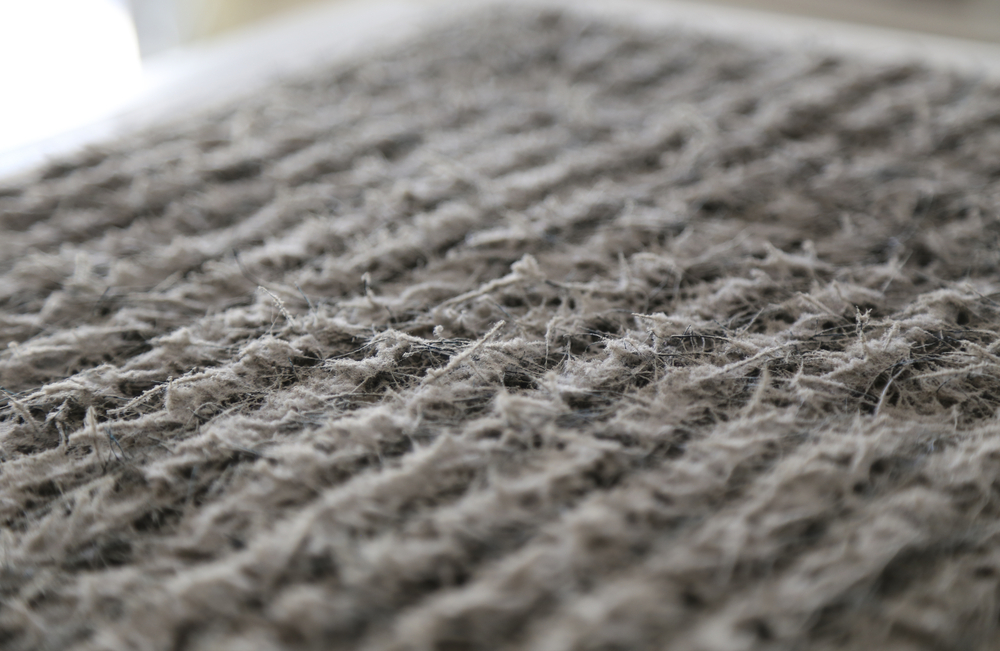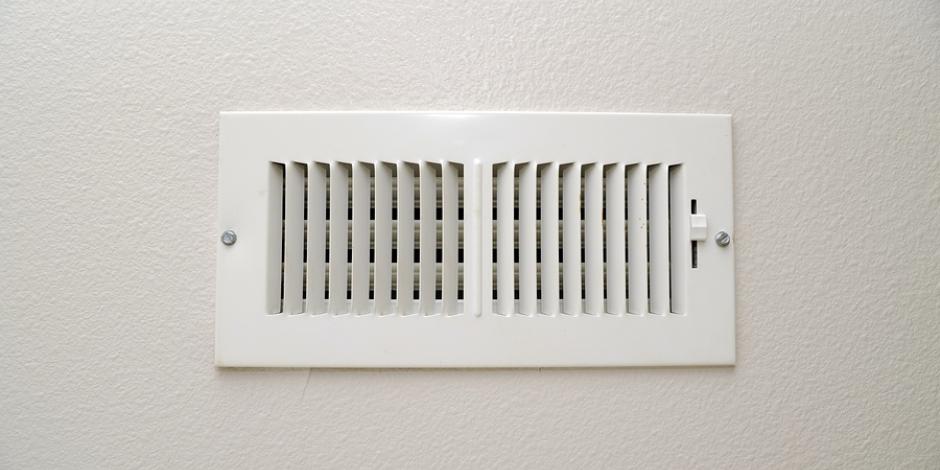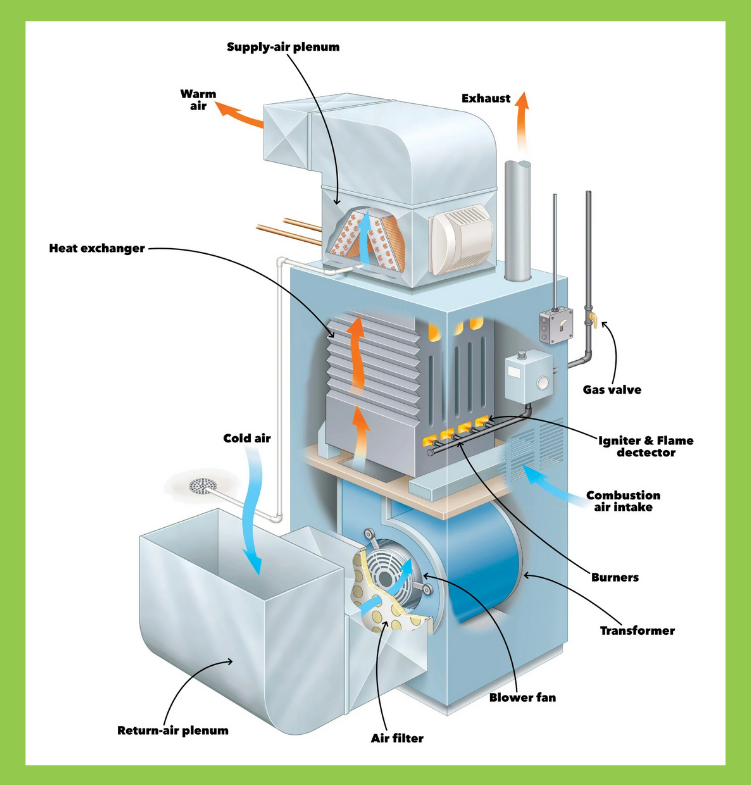The last thing you want to hear while cozying up in the winter is loud noises coming from your heating system. Unfortunately, forced-air furnaces are comprised of many moving parts, meaning it's not too uncommon to hear odd noises coming from the system. The real question is: why is my heater making this noise? Here are the eight most common heater noises and what causes them.
HVAC systems are complex, hard-working systems that, like any other appliance, are prone to issues and breakdowns sometimes. Scheduling annual heater maintenance is a great way to prevent these unusual sounds from disrupting your day. If you do come across any of these sounds, however, it's important to understand why they may be occurring and what to do about them.
1. Screeching/Scraping
Hearing what seems like metal scraping against metal? That's probably the exact issue occurring within your heater. A screeching/scraping sound oftentimes indicates that the blower fan has come loose and the blades are dragging across the casing of the furnace. It could also be other parts of the furnace that have come loose. While this problem isn't necessarily hazardous, you should turn the furnace off and have a technician determine what exactly is causing the sound. If the heater is left in poor condition, it will likely end up causing larger, more costly repairs later on.
2. Chirping
A chirping sound may occur after turning on your unit after it hasn't been in use for a while. Once the furnace has warmed up and run for a few minutes, the noise should stop. If the chirping sound continues or gets worse after some time, there may be issues with the belt. In this case, you should have a service technician check the unit and recommend any necessary repairs/replacements.
3. Rattling/Clanging
If you hear a rattling or clanging-type sound coming from the furnace then there may be a loose panel, which can be fixed simply by tightening the cover panels. If the panels are tightened, the noise may be due to the furnace expanding and contracting the metal parts as they change temperature. This should only occur right after your furnace starts or stops blowing hot air. If the noise continues, it may be something more complicated and a technician will need to come to diagnose the issue.
4. Knocking
Two common causes of a knocking sound from your furnace are a damaged/cracked belt and bad bearings. In either of these cases, a technician should be contacted to confirm the issue and make necessary repairs. A knocking noise could also mean there's an issue with the blower fan. For example, if the fan becomes misaligned, the blades may hit against parts of the furnace. As mentioned earlier, a loose fan may cause a scraping sound as well.
5. Booming/Banging
Just like how a chirping sound can come from parts in the furnace expanding and contracting, a banging sound may come from the metal ductwork expanding and contracting when the blower starts up. If the filter hasn't been changed in a while, it can cause air to get backed up inside and circulate incorrectly. The banging noise comes from the furnace expanding due to the excess air. To stop this sound, try changing the air filter and making sure the supply vents are open.

A loud boom or bang coming from the heater itself is likely from a delayed gas ignition. When a furnace gets the signal from the thermostat to begin a cycle, the gas valve opens and the gas is ignited. The booming sound occurs when the gas in the combustion changer builds up rather than igniting immediately. Once the gas finally ignites, a mini-explosion happens, which can harm your furnace.
A few different things can cause issues with the ignition in a furnace. If the furnace has a pilot light, a weak flame might prevent the gas from igniting quickly. The root cause may also be dirty or clogged burners or very low gas pressure.
If the booming/banging sound continues to occur after changing the filter, or if you suspect there's a problem with the ignition, it's best to have a technician see what's going and prevent further issues from occurring.
6. Humming
A humming sound throughout an entire heating cycle typically comes from an issue with the blower motor. This issue may be as simple as improper lubrication or could be something a little more complicated, such as a fault in the capacitor. Once your house is warm, the blower begins to run at a slower speed. However, if the blower motor slows down unusually and makes a humming sound, this is likely due to a fault in the capacitor. This is usually caused by a dirty filter which makes the motor work harder to push out air. In some cases, the motor will have to be replaced.

Finally, a humming sound could mean that the fan is wearing out. You should pay attention to how long the noise is occurring and call a technician to take a look at your heating system.
7. Whistling
Furnace whistling is a common issue and is caused by something interfering with the airflow. Oftentimes there is a blockage, such as an air filter that needs to be cleaned or replaced. It could also be from a blocked return, closed vents throughout the home, or objects in the ductwork. These issues can be resolved by cleaning/changing the filter, opening the vents, or having your air ducts cleaned.

In addition, a whistling sound may occur if your furnace is too big for your ductwork or your home. In this case, a technician will have to give you options on replacing the whole furnace.
8. Rumbling
A low rumbling sound that continues even after your furnace has completed a cycle and switched off could be dangerous and requires immediate attention. If oil or gas remains in the combustion changer once the cycle is complete, the fuel will continue to burn and the burner will make the rumbling noise. You should turn the furnace off and call a technician right away if you hear this, as the extra fuel in the chamber can contribute to high levels of carbon monoxide in the home.
A rumbling sound may also mean the pilot light is low. If you see that the entire flame is burning yellow, red, or green, it means something else has entered the gas and is burning along with the methane. It may be dirt, rust, or excess air causing this color but, in any case, shut off your heater and schedule a service appointment.
If you live in the Delaware Valley/Greater Philadelphia area and would like to find comfort within your home, visit our website or give us a call at 215 - 245 - 3200 to learn more.






